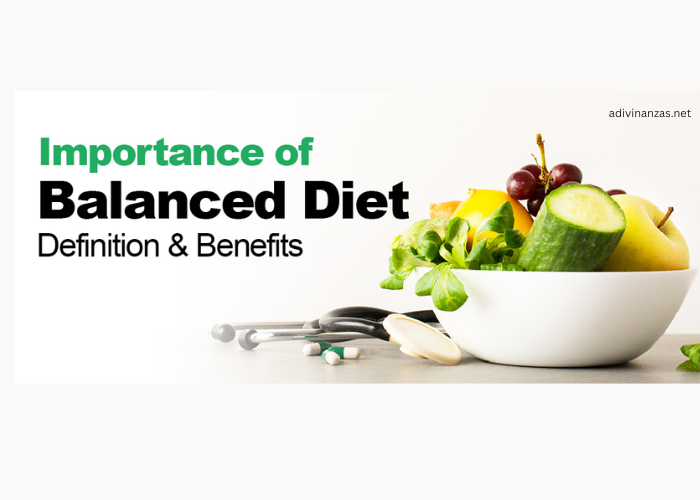Maintaining a balanced diet is one of the cornerstones of a healthy lifestyle. A well-rounded diet not only supports physical health but also enhances mental well-being and boosts energy levels. By understanding the components of a balanced diet and implementing practical strategies, you can make long-term changes that lead to optimal health.
What Is a Balanced Diet?
A balanced diet provides your body with the essential nutrients it needs to function correctly. This includes:
- Carbohydrates: The body’s primary energy source. Found in whole grains, fruits, vegetables, and legumes.
- Proteins: Crucial for building and repairing tissues. Sources include lean meats, fish, eggs, nuts, and dairy products.
- Fats: Necessary for brain health and energy. Choose healthy fats from sources like avocados, nuts, seeds, and olive oil.
- Vitamins and Minerals: These micronutrients are vital for various bodily functions. They are abundant in fruits, vegetables, nuts, and whole grains.
- Fiber: Supports digestive health. Found in whole grains, fruits, vegetables, and legumes.
- Water: Essential for hydration and overall body function.
Tips for Maintaining a Balanced Diet
-
Include a Variety of Foods
- Eat a rainbow of fruits and vegetables to ensure you get a wide range of nutrients.
- Incorporate different protein sources, such as fish, beans, tofu, and poultry.
-
Control Portion Sizes
- Use smaller plates to avoid overeating.
- Follow recommended serving sizes to maintain a healthy calorie intake.
-
Limit Processed Foods
- Reduce consumption of sugary drinks, fast food, and snacks high in salt and unhealthy fats.
- Opt for whole foods over pre-packaged options.
-
Stay Hydrated
- Drink plenty of water throughout the day.
- Limit sugary beverages and alcohol.
-
Plan Your Meals
- Prepare meals in advance to avoid unhealthy last-minute choices.
- Include a balance of macronutrients in every meal.
-
Mindful Eating
- Pay attention to hunger and fullness cues.
- Eat slowly to enjoy your food and aid digestion.
Common Challenges and Solutions
- Busy Schedules: Prep meals on weekends and keep healthy snacks like nuts and fruit on hand.
- Budget Constraints: Buy seasonal produce and consider frozen fruits and vegetables.
- Lack of Knowledge: Educate yourself about nutrition using credible sources or consult a dietitian.
Benefits of a Balanced Diet
- Improved Energy Levels: Steady intake of nutrients prevents energy dips.
- Better Mental Health: Nutrient-rich foods support brain function and reduce stress.
- Disease Prevention: Reduces the risk of chronic conditions like heart disease, diabetes, and obesity.
- Enhanced Immune Function: A diet rich in vitamins and minerals helps your body fight off illnesses.
Final Thoughts
Maintaining a balanced diet doesn’t mean depriving yourself of the foods you love. Instead, aim for moderation and variety, ensuring that your meals nourish both your body and mind. Start with small, sustainable changes, and over time, these habits will become a natural part of your lifestyle. Remember, your health is your wealth—invest in it by choosing a balanced diet every day.

